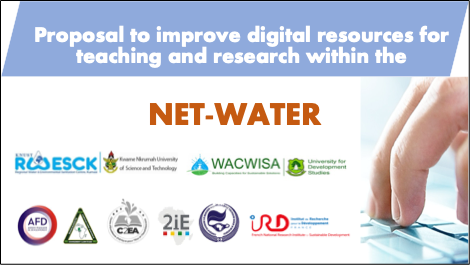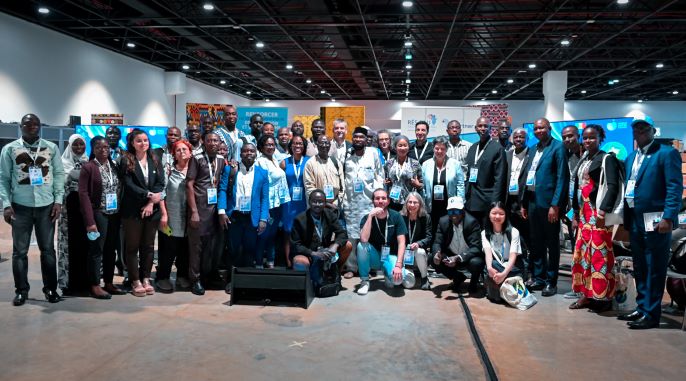The effect of the covid-19 pandemic is widely known around the world today. In the world of education. Universities have had to adapt quickly to covid-19, changing the way they teach courses from a physical model to one that takes distance learning into account. With the impact of covid-19 still visible today, NET-WATER's ACEs decided to strengthen their ability to deliver courses following a blended learning model with online and physical classes.
The study is being carried out by the Disctance learning of the Kwame N'krumah University of Science and Technology, which has extensive experience in distance and online learning.
The objectives of the study are as follows:
- Identify the problems encountered by RES-EAU CEAs during the Covid-19 pandemic to ensure continuity of teaching and research activities;
- Carry out a diagnostic of the IT resources and equipment, digital technology platforms and connectivity available for each African Center of Excellence for teaching, research and distance work;
- Identify the strengths and weaknesses of teacher-researchers and research staff support dedicated to distance teaching and research;
- Identify capacity-building needs for teacher-researchers and support staff in the field of digital education;
- Identify best practices in the use of digital science and technology in research and higher education at CEA ;
- Identify the distance learning courses offered by the CEA and the courses they plan to offer by distance learning;
- Map the key players and partners involved in digital education and science;
- Draw up a digital reinforcement and development plan for each RES-EAU CEA, including strategy, action plans, budgets, sources of funding and possibilities for inter-CEA pooling.
This study should enable each CEA to formulate a capacity-building plan for co-education.
Christopher Addo, Assistant Registrar, Kwame Nkrumah University of Science and Technology
Prof Harouna Karambiri, Director of CEA 2iE
Dr. Albert Amoah Saah, Digital Education Expert, Kwame Nkrumah University of Science and Technology
RES-EAU, in partnership with Bond'Innov, is currently carrying out a study to intensify collaboration between CEAs and the socio-economic sector.
The objectives of this study are to:
- Identify and map the potential socio-economic actors who collaborate with RES-EAU's AECs in each country and in the sub-region;
- Identify potential areas of collaboration between RES-EAU and the various players identified;
- Set up mechanisms to facilitate collaboration between RES-EAU and identified stakeholders
- Propose the terms of reference for the first workshop/framework for consultation between RES-EAU members and socio-economic players
This study should ensure that RES-EAU increases its collaboration with the socio-economic sector on key issues in the sustainable management of water resources.
To find out more about Bon'Innov: https: //bondinnov.com




